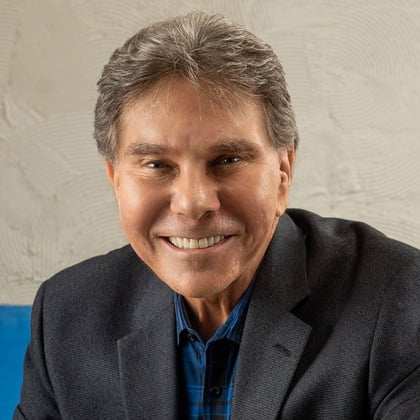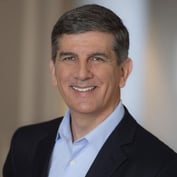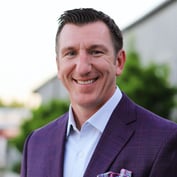Robert Cialdini, PhD., the seminal expert on persuasion dubbed the “godfather of influence,” is busy publicizing his new book, while at the same time advising the Centers for Disease Control on how to persuade anti-vaxxers to take the COVID-19 vaccine. He discusses both pursuits in an interview with ThinkAdvisor.
Famed for creating the Six Universal Principles of Influence, the persuasion scientist has now added a seventh rule: Unity, to which he devotes a 73-page chapter in the revised, expanded edition of his 5 million-copy bestseller, “Influence: The Psychology of Persuasion” (Harper Business- May 4).
His other rules — well known by now — are Reciprocity, Commitment and Consistency, Social Proof, Liking, Authority and Scarcity.
In the interview, Cialdini explains how achieving Unity promotes trust and partnership with an individual whose agreement “compliance practitioners” — as he calls anyone seeking to persuade — crave. Unity creates shared identity with another, and that produces harmony, he says.
President and CEO of Influence at Work, which provides programs on the ethical use of the science of influence, his clients include Amazon, Google, Merrill Lynch, Microsoft, Morgan Stanley and Schwab — and he has advised the CIA and the U.S. Department of Justice, too.
The expanded “Influence,” backed by 35 years of scientific research, explores new research and serves up insights for digital businesses.
In our interview, Cialdini predicts that post-pandemic, handshaking will resume; reveals how to persuade centers of influence to send over referrals; and discusses why asking clients for advice makes them think of you as their partner.
He also explains how one of the techniques he’s suggested to the CDC to persuade people resisting vaccination would be an effective approach for financial advisors to use with clients.
Professor emeritus of psychology and marketing at Arizona State University, Cialdini is the author of three New York Times bestsellers, including “Pre-Suasion: A Revolutionary Way to Influence and Persuade.”
ThinkAdvisor recently interviewed the behavior scientist, who was on the phone from Arizona. “The bottom line is to get an individual to comply” with your recommendation or proposal — in other words “to change their behavior,” he stresses.
Here are excerpts from the interview:
THINKADVISOR: “The prevalence of shortcut decision-making is likely to increase,” you write. What are the shortcuts?
ROBERT CIALDINI: The 7 Principles of Persuasion. Now is the most information-overloaded environment ever. So we need shortcuts through the maze of all the options that are presented to us. The shortcut principles are rules of thumb.
Why do you use the term “compliance practitioner” instead of, say, persuader or influencer?
The bottom line is [getting] the individual to say yes — to comply with your request, proposal or recommendation. That’s behavior change. We ought to focus on people’s complying, so that they move in the direction we’re recommending for them.
What are folks essentially seeking in that sort of situation?
They want a partner who they can trust, someone they find amenable and harmonious. So, everything we can do to produce that situation is the coin of the realm. I’m not just talking about [getting] someone to believe in us more or trust or like us more. Those occur in the service of getting people to say yes.
What’s one of your principles that would help financial advisors, in particular?
If a prospective client sees a lot of social proof [evidence that many in the same circumstances as they chose the option you’re recommending] that a particular advisor or firm is associated with numerous positive comments, they’ll think, “Okay, I can stop looking now [for an advisor].” And they’ll move forward [with that one].
Why did you choose Unity as your new and 7th principle?
One of two major reasons is that in the literature of persuasion science, studies show how powerful the [concept of] unity can be in changing people from being hesitant or resistant in a situation to being compliant.
What’s the other reason?
What’s going on around us now: the tribalism that exists around the world — politically, between ethnic groups, racial groups, religious groups. I thought, if we can harness that power in a constructive way, it will bring down barriers.
How can an advisor influence their centers of influence to refer clients to them?
If these [professionals] see us as one of them — because people favor those who share membership with them — and we can arrange to be inside that group, we’ll be favored and followed by them. That way, when we want some help from them, we can begin by saying, “You know, we’ve been working together as partners for a long time now —” And down come the barriers.
You point out that negotiations that begin with a handshake produce better outcomes for both sides. Is shaking hands ever going to come back?
Once we’re past the pandemic and most people are vaccinated, it will — because that’s the gesture of partnership. Researchers have found that if negotiators shake hands at the beginning of a negotiation, it’s more likely that the negotiation will produce beneficial outcomes for both sides.
Why?









 May 10, 2021 at 03:58 PM
May 10, 2021 at 03:58 PM











